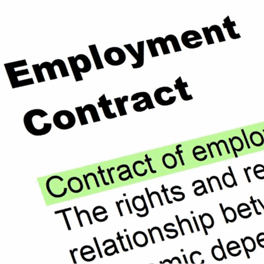Agrijobs Blog

Employment Contracts
POSTED BY ANONYMOUS
Thursday, June 13, 2019
This is what your career contract is and is sometimes almost the length of a house purchase contract.
Landmines: You need to look out for landmines – such as IP protection, non competition clauses and the length of notice periods.
Non-compete clauses: Another very big area to get advice on. Does your non-compete mean you can’t work with any company competitor? Is your non-compete clause even legal the way it is framed?
Some of these clauses can be quite draconian - for instance a non-compete clause within a 65KM radius of the current employers offices. So if your company’s office is in the CBD, you get the drift. Get advice.
IP: Have some bright ideas? Well you need to remember how to protect yourself if you plan on sharing these with your new employer. Get advice
Probationary period: 6 months vs 3 months.
Notice period: Is your employers notice period 4 weeks, 1 week or 8 weeks? Some employers require a longer notice period (which there is obligation to pay out unless there are extenuating or exclusionary clauses in the contract). Are you willing to work for an extra 8 weeks if you’ve reached the stage where you’re just done? Get advice
Lurks and perks of the contract: What is your final wage going to be? What is the breakdown of your KPI based bonuses? Do you get the ATO rate for car allowance / a rate set by the company / pool car access?
Leave: Maternity leave, personal leave, long-service leave.
Expert advice: Always get advice from experts. Your best friend is great to throw ideas around with but they might not be the best-practice, evidence based expert with the technical expertise to give you advice that will stand up in a court of law.
Experts to get advice from:
Your recruitment consultant
A legal representative
An Accountant
Fair Work Australia
TAGS
- Fair Work Commission
- Human Rights Commission
- Workcover Authority
- Employment Contracts
- Job Benefits
- Salary Package
- Agriculture
- Non Agricultural Candidates
- JOB SEARCH TIPS
- AGENCY RECRUITMENT
- RESUME
- HELP FINDING A JOB
- FEEDBACK
- REFERENCE CHECKS
- CANDIDATE PRIVACY
- Job Search Candidate Priorities
- Wage Review
- Appraisals

 TWITTER
TWITTER FACEBOOK
FACEBOOK LINKEDIN
LINKEDIN SUBSCRIBE
SUBSCRIBE